Tag: wicking beds
-
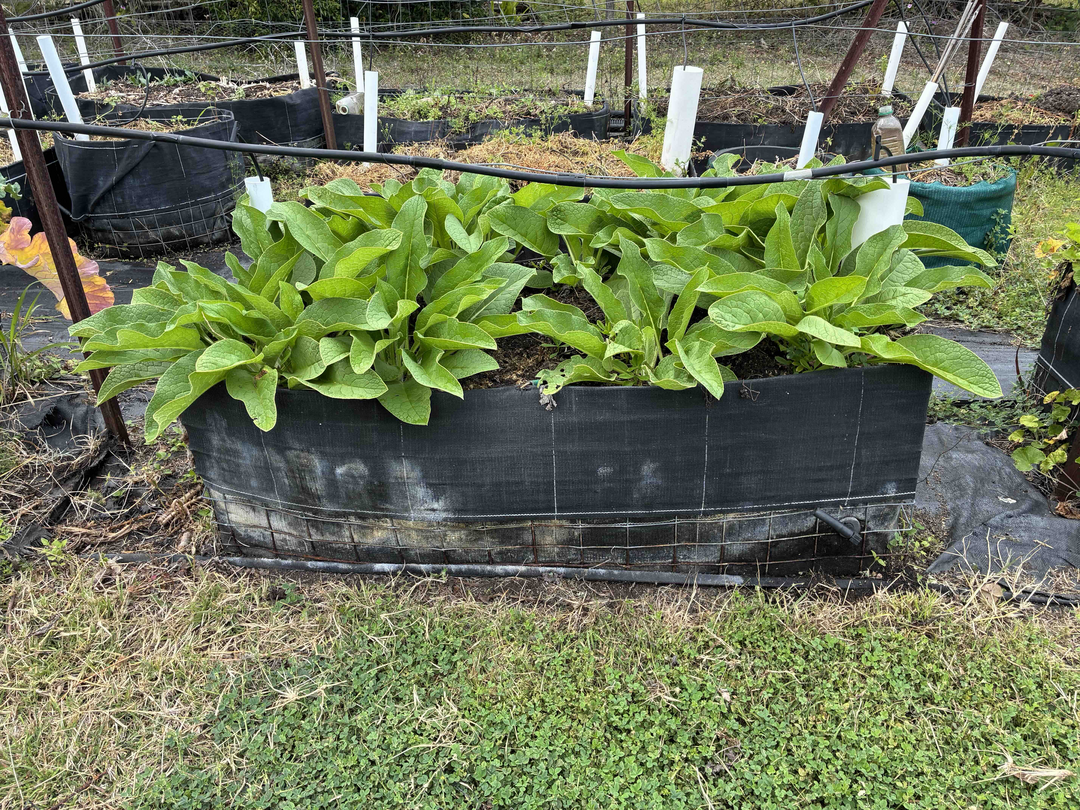
Lightweight Wicking Beds from Crab Pot Mesh and Weedmat
Crab Pot Mesh and Weedmat Wicking Beds are cheap, easy to build with simple home tools, and can be made in any shape or size to suit your requirements. Our designs minimise waste of mesh, plastic, and time. Despite their simplicity, they’re exceptionally durable—our beds built in 2010 still show little to no wear in…
-

The Basics of Building your own Wicking Beds
Wicking beds can be purchased, but many sold as ‘wicking boxes’ do not actually wick. Before buying, read our article on the countless ways to make wicking beds and make sure to watch out for many of the common misconceptions and design flaws of commercialised and popularised wicking beds. Proper wicking beds are easy to make. Any container…
-

Risk Assessments and Regulations of Wicking Beds in Schools
Any proposal to build wicking beds on school grounds requires the usual risk assessment. The information below is meant to assist the proposer. They are based on Queensland Government regulations and reflect Australian standards more broadly. While many rules apply nationwide, schools outside Queensland should confirm any additional local requirements. This information was last reviewed…
-
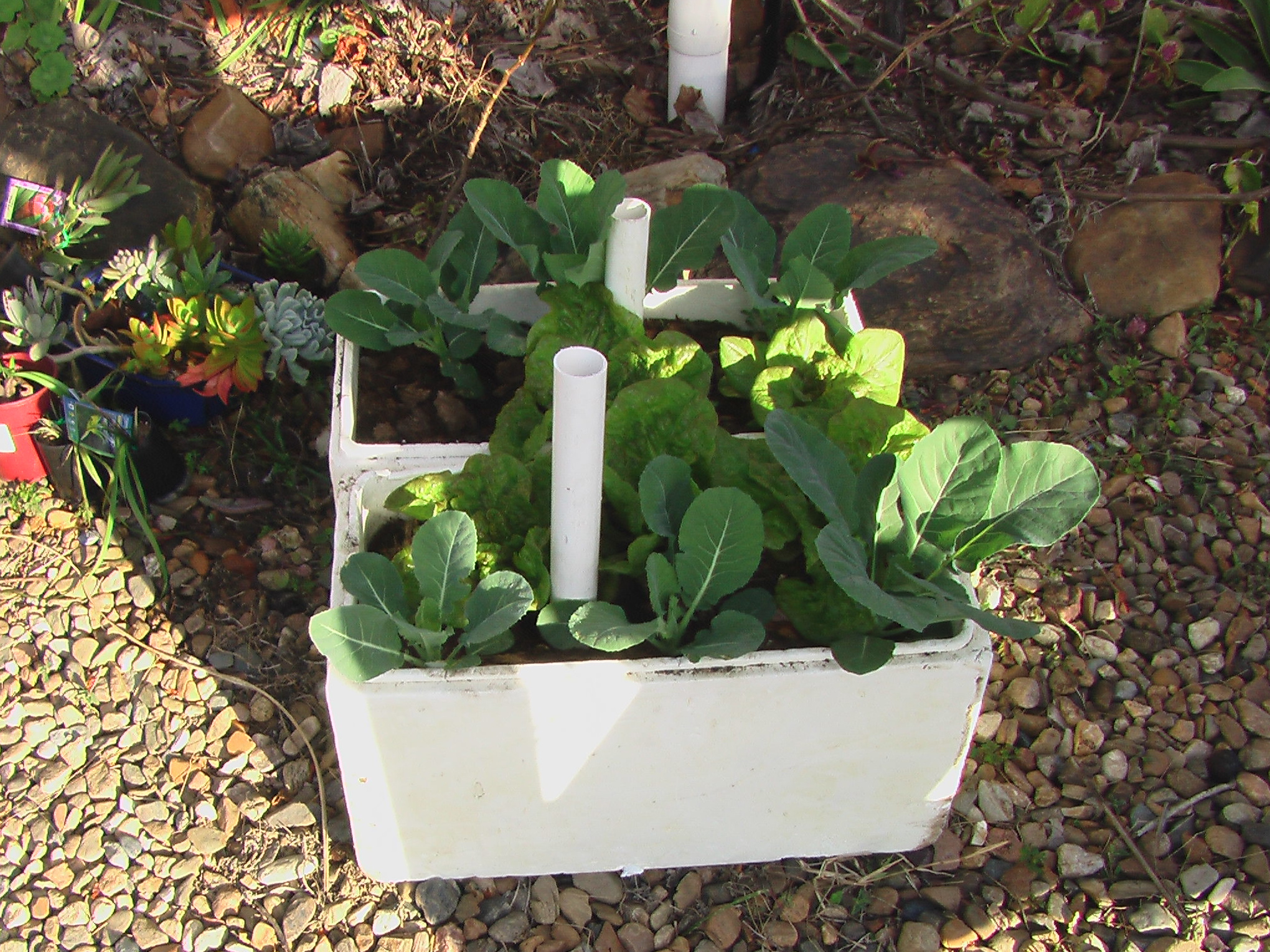
Introduction to wicking beds and boxes
Wicking boxes and beds are for people who like to grow at least some healthy vegetables but are short of time, water, suitable space or money. With wicking boxes, they can grow healthy vegetables in weekends, on balconies, concrete surfaces, near trees and on heavy clay soils. They are very water-efficient. Wicking refers to water…
-
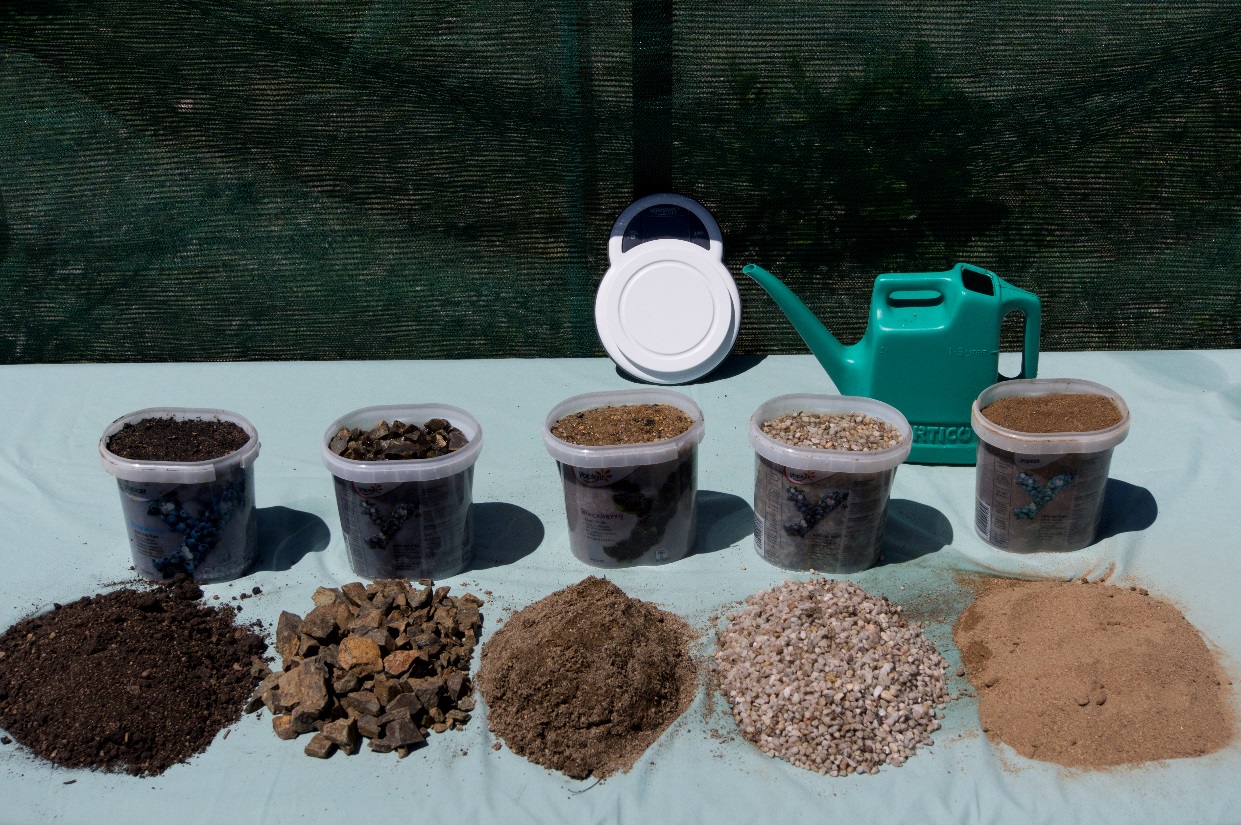
The Hidden Costs of Using Cloth and Stones in Wicking Boxes and Beds
When making wicking beds and boxes, a widely promoted mistake that is based on two common misconceptions, is to put stones next to the reservoir and a sheet of cloth over both. In addition to costing money, there are hidden costs that are far more important. Rocks waste space where the soil biology should be,…
-
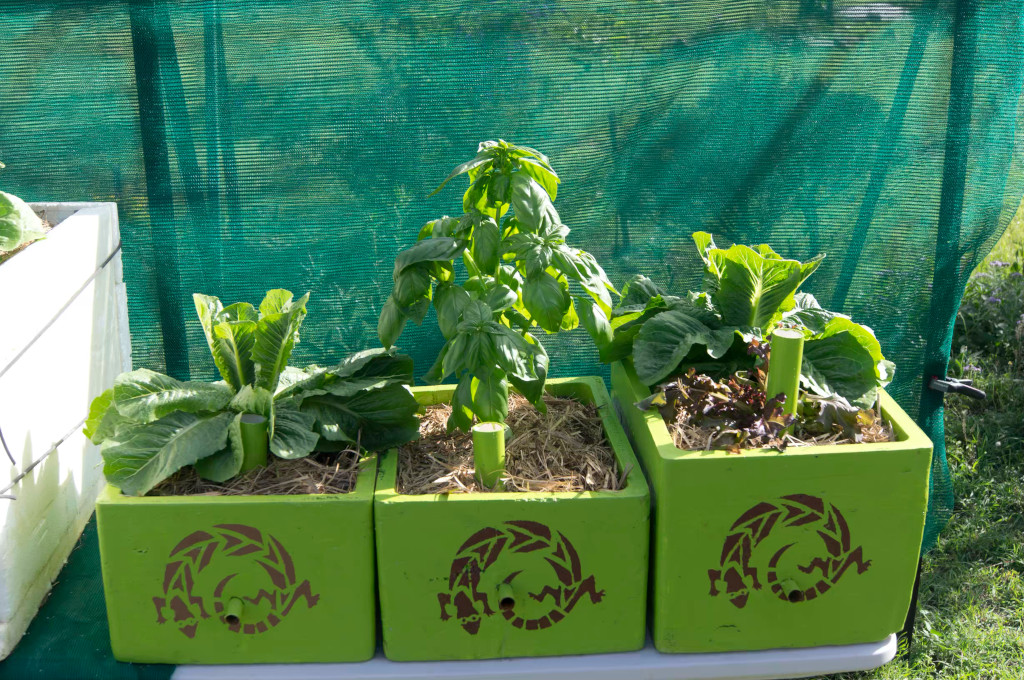
Countless Ways to Make Wicking Beds
Wicking beds can be made from almost any materials and are limited only by our imagination. Here are some examples: Styrofoam Boxes Styrofoam boxes of all sizes can be turned into wicking beds, from 50-litre boxes to 13-litre mini versions using 40 mm PVC pipe as a reservoir. These can be decorated and placed on tables…
-

Building Wicking Beds for Schools
Wicking beds are a useful teaching aid and a hands-on way to introduce your students to gardening. The tips in this guide can also be used for home gardens, but this article refers to materials that comply with school regulations. Choosing and Preparing the Site Find a position that gets at least six hours of…
-
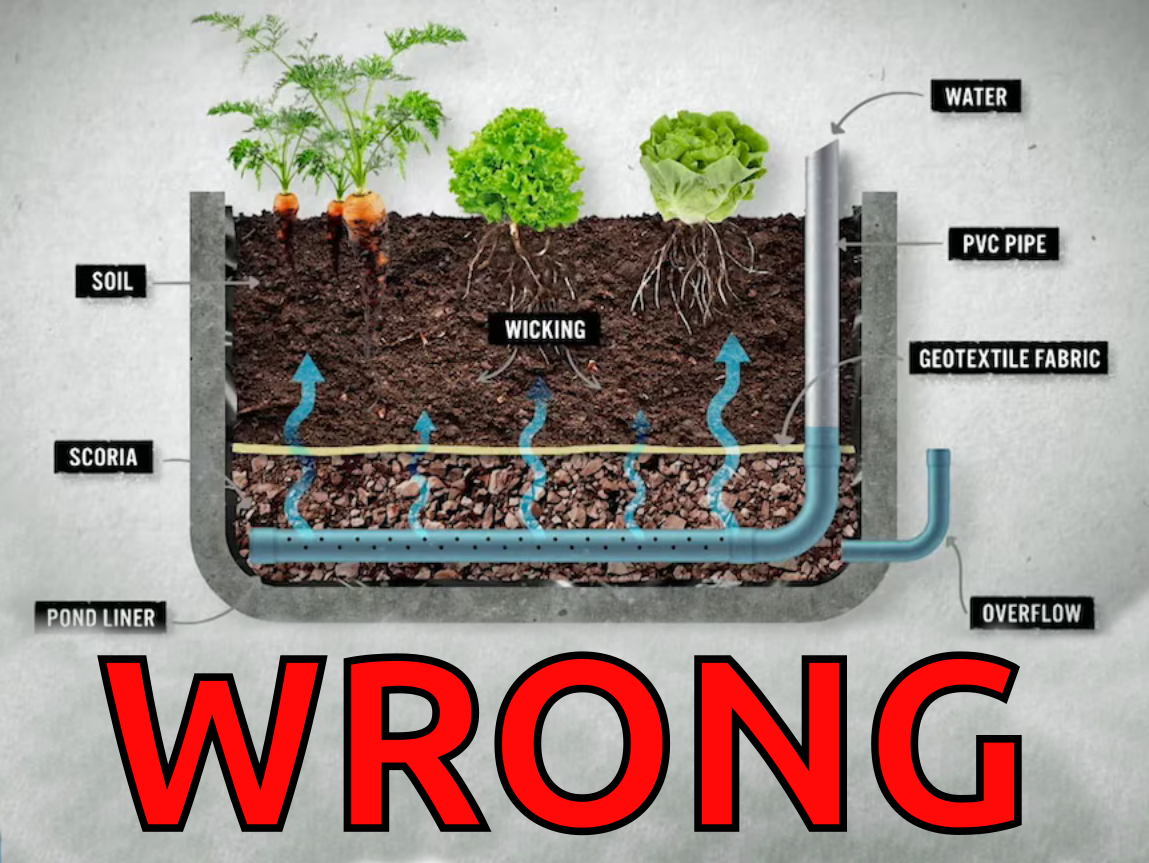
Consequences of Misconceptions in Wicking Bed Designs
Many so-called “wicking beds” found on the internet fail to wick properly. Unfortunately, even reputable sources like the ABC have promoted flawed designs. These issues stem from two major misconceptions. Misconception 1: Soil Filling the Reservoir Some believe that rain or excess surface watering will cause soil to fill the water reservoir. This only happens…
-
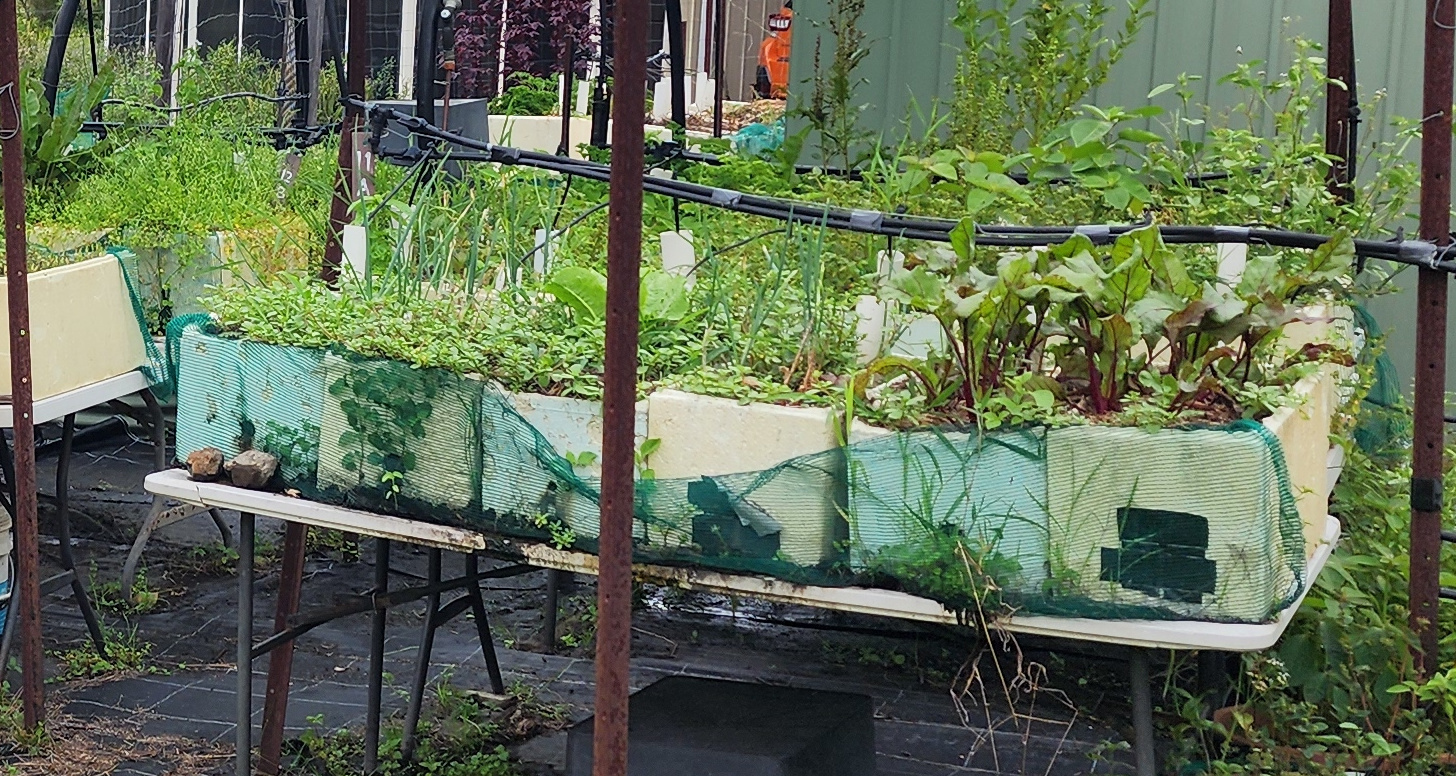
Making a Styrofoam Wicking Box
Converting Styrofoam boxes into wicking boxes is a cheap and simple way to grow at least some of your own healthy food at home. They are portable and smaller boxes fit on a 1.8 m table, so even patios and concrete slabs can become useful places to grow. They can be made with common household…
-
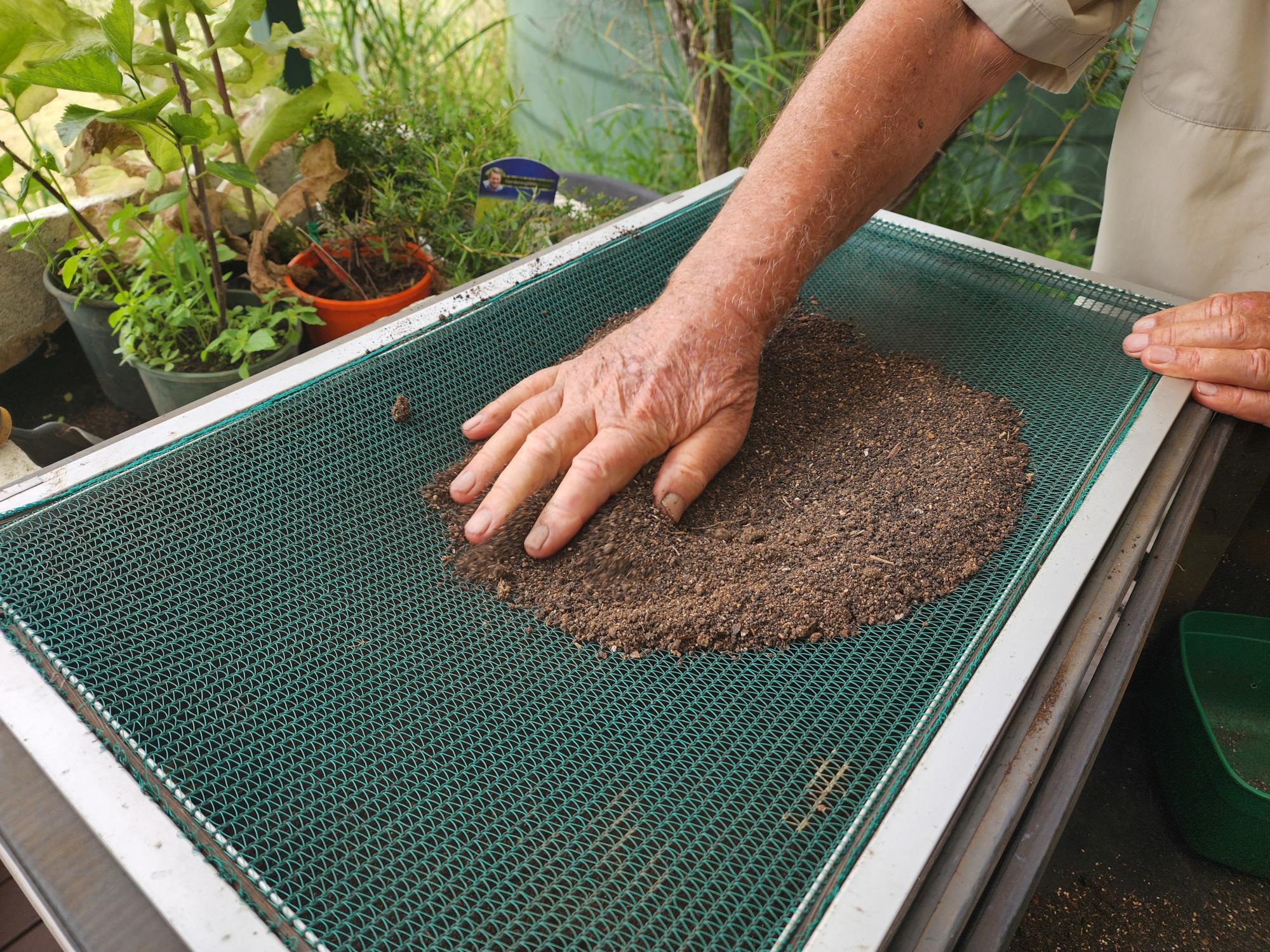
Mixing Your Own Healthy Soil for Wicking Boxes and Tubs
Soils along the Queensland coast are often composed of silt and fine sand, with little clay and low mineral content. These sandy, low-fertility soils are sometimes sold as “topsoil” at garden supply stores, but the term refers only to their origin at the surface, not their quality or fertility. When using commercially sourced topsoil, screen…
